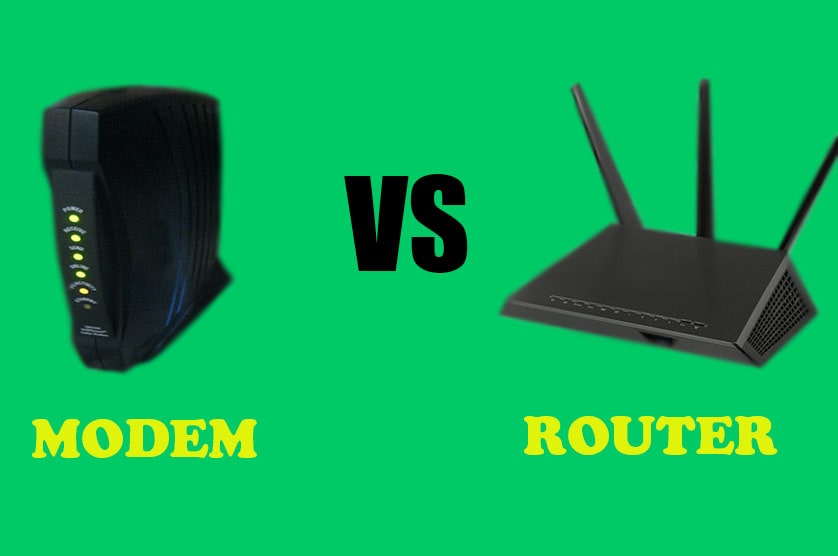

Connection to your router is most common because multiple devices can access the internet with the wifi network it establishes.

You will find that most modems have two connection ports – one that connects to your ISP, and a LAN Ethernet connector that can be connected either directly to your computer, or into your router.

It can function independently of a router, and will serve its purpose whether you have one or not.Ī modem works by modulating and transforming electrical impulses sent by your internet service provider through a coax cable, into a digital or analog format that your computer or router can understand.
Requires a modem to connect to the internetĪ modulator-demodulator, or modem, is the device your router uses to connect to the internet. Does not require a router to function by itself. Connects directly to your internet service provider (ISP). Some broadband providers combine these pieces of hardware together, but they are still doing two different things. Your router creates a network that connects all the devices in your home to the wifi, and your modem connects that network to the internet. In short, modems connect to the internet, while routers connect your devices to a wifi network.īut they link in an important way. If you've ever received a copyright-related correspondence from your ISP, that's because of your ISP's knowledge of your computer's IP address: The ISP, using the modem, assigns an IP address to your device when you connect to the network.While they are both important pieces of hardware, there are many differences between a modem and a router. Your modem would be a hunk of useless hardware without the ISP to communicate with it. Your ISP, or internet service provider, is the company you're likely paying to get internet service. There are also two important acronyms to know related to your modem: the ISP and IP address. The modem will still be limited in its speed, and depending on the type of modem, may not even work at all. For instance, if you don't have access to fiber internet or 5G, it won't matter that your modem is top-notch. But that's something your ISP is on the hook to fix, not you.Īnother issue that can impact modem connectivity is provider availability. For instance, old or damaged cable lines that connect your modem to the ISP can cause slower speeds. The main thing you'll be concerned with as far as your modem though is its reliability and speed connecting to the internet.Įven if you have the newest, fastest type of modem, factors beyond your control can impact its connection. They can be as small as a smartphone or as large as a box of cereal. Generally, a modem is black, with an appearance similar to a gaming console - flashing lights and a sleek, compact design. The modem authenticates and connects you to your chosen internet service provider (ISP), which might be a local provider or a national company like AT&T or Comcast. A modem is your gateway to internet access The essential difference between a modem and a router is that a modem connects you to the internet as a whole while the router manages and routes the internet to your devices.







 0 kommentar(er)
0 kommentar(er)
